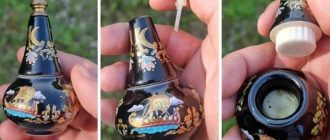“Stop throwing this away!” 🥑 Most people toss the avocado seed—but it’s packed with antioxidants, fiber, and even heart benefits! From smoothies to DIY scrubs, here’s how to use it safely and get the most out of your avocado. Full guide in the article below 👇
When you scoop out the soft, green part of an avocado, you probably toss the seed without a second thought. But that solid brown pit in the middle is actually full of surprising benefits. From supporting your heart to adding a nutrition kick to your smoothie, this little seed might be worth keeping. Let’s take a look at what it offers and how to use it safely.
What’s Inside the Avocado Seed?
Most people focus on the creamy part of the avocado, but the seed also has some interesting nutrients. Studies, like one published in Antioxidants (2018), show that avocado pits contain fiber, polyphenols, and flavonoids — which may help fight inflammation and protect your cells from damage.

That said, much of the research has been done on animals or in labs, so we don’t yet know exactly how these benefits translate to humans. Still, in some cultures, especially in Latin America, avocado seeds have long been used for natural remedies — which makes them worth exploring (with caution).
What Are the Possible Health Benefits?
1. A Good Source of Antioxidants
Antioxidants help protect the body from stress caused by things like pollution and poor diet. A 2019 study in Molecules found that avocado seeds may have more antioxidants than the flesh. These can help support overall health.

How to Use It: Dry the seed, grind it into powder, and add a small amount to smoothies.
Tip: Try mixing it with fruits high in vitamin C, like oranges, to help your body absorb antioxidants better.
2. May Support Heart Health
The fiber and plant compounds in avocado seeds might help improve cholesterol levels. One study in Plant Foods for Human Nutrition (2014) found that avocado seed extract lowered bad cholesterol (LDL) and raised good cholesterol (HDL) in animals.

Try This: Sprinkle a small amount of grated avocado seed into heart-friendly meals like oatmeal or salads.
Reminder: A healthy diet with less saturated fat is still key for your heart.
3. Could Help With Digestion
Avocado seeds are rich in fiber, which helps keep your digestion running smoothly. Eating too much at once can upset your stomach, so start small.
How to Use: Blend a pinch of seed powder into soups or smoothies for added fiber.
Note: If you’re not used to high-fiber foods, take it slow at first.

4. Might Have Natural Germ-Fighting Abilities
Some studies suggest avocado seeds can fight certain bacteria. One study from 2017 showed they slowed the growth of E. coli in lab tests. While they’re not a replacement for medicine, they may help support your immune system.
Cultural Use: In some regions, people make avocado seed tea as a home remedy.
Important: Don’t use it to treat infections—always see a doctor if you’re sick.
Other Ways to Use Avocado Seeds
Besides health, avocado seeds can be reused in creative and eco-friendly ways:
Avocado Seed Tea: Wash and dry the pit, then grate it. Steep a teaspoon of powder in hot water for 10 minutes. Strain and enjoy.
Smoothie Booster: Dry the seed in the oven (about 250°F for 1–2 hours), grind it, and add 1/4 teaspoon to smoothies.
Natural Dye: Boil avocado seeds in water to make a pink-red dye for fabrics or crafts.
Homemade Scrub: Mix the powder with coconut oil and sugar for a simple body scrub. Use gently to avoid skin irritation.
Tried it? Share your favorite way to reuse avocado seeds in the comments!
How to Prepare and Use the Seed Safely
Because avocado seeds are very hard, they need special handling. Follow these steps to use them properly:

Clean It Well: Wash off any leftover avocado.
Dry It: Leave it in the sun or put it in a 250°F oven for 1–2 hours.
Grind It Safely: Use a strong blender or spice grinder. If grating by hand, wear gloves to protect your fingers.
Store It Right: Keep the powder in a dry, sealed container for up to one month.
Use Small Amounts: Start with 1/4 teaspoon to see how your body reacts.
Be Aware: The bitter taste comes from tannins, which can upset your stomach if you have too much.
Check for Allergies: Try a small amount to make sure you don’t react badly.
Things to Watch Out For
Even though avocado seeds can be helpful, there are a few things to keep in mind:

Lack of Human Research: Most studies are still early-stage and not done on people.
Risk of Toxicity: Compounds like persin can be harmful in large doses (especially for animals).
Tummy Trouble: Too much fiber can cause gas or bloating.
Medicine Interactions: Talk to your doctor if you take medications, especially blood thinners.
Avoid If Pregnant or Nursing: There’s not enough safety info available.
If you feel sick, itchy, or have an upset stomach after using avocado seed, stop right away and talk to a healthcare provider.
Want to Learn More?
Here’s where you can get more tips and info:

Trusted Sites: WebMD, Healthline, Harvard Health.
Books & Blogs: Look for natural wellness cookbooks or DIY blogs.
Local Stores: Ask your local health food shop for advice on using avocado seed powder.
Online Groups: Join eco-friendly or wellness forums for tips and shared experiences.
Like this article? Tag a friend who loves avocados and might want to try this!
What’s Next for Avocado Seeds?
Researchers are still learning more about these seeds — not just for food, but also for skincare, medicine, and even biodegradable products. Institutions like the NIH are calling for more studies on how safe and effective they are for people.

As more people care about reducing food waste, avocado seeds could become a great way to recycle something we usually throw out — all while getting some health benefits too.
Final Thoughts
Avocado seeds may seem like trash, but they could actually be a hidden treasure. Packed with antioxidants and fiber, they can be used in small amounts to support a healthy lifestyle — and they’re also great for fun DIY projects.
Just remember: prepare them safely, use them sparingly, and talk to your doctor if you have concerns. Next time you cut open an avocado, don’t toss the pit — put it to good use!
Disclaimer: This article is for general information only and not a substitute for medical advice. Talk to a doctor before making any health changes.







